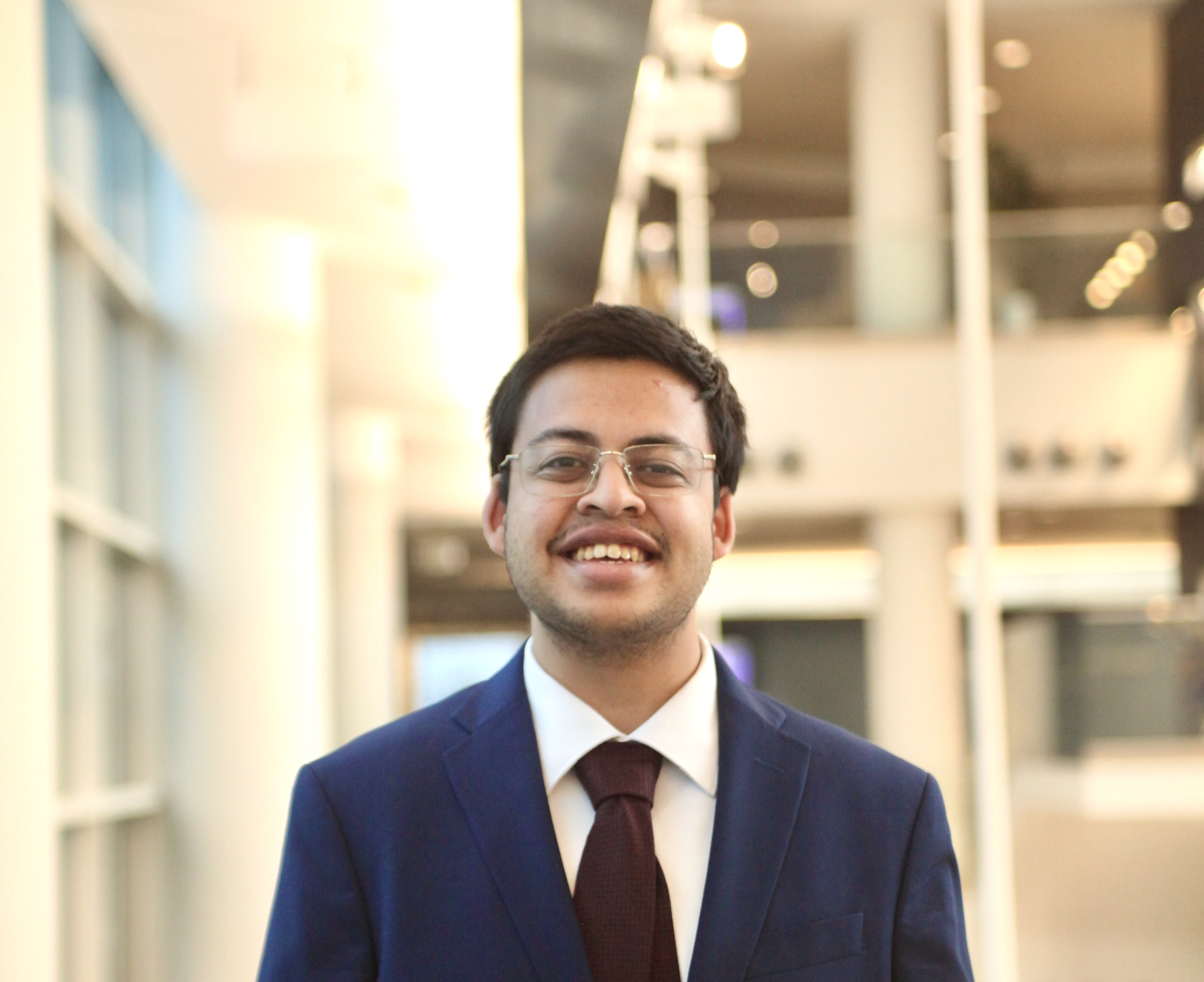Rishab Agarwal is a 4th-year Business Administration major studying a sub-field of health equity know as financial toxicity with Dr. Candace Fleischer.

How long have you been an undergraduate researcher at Georgia Tech?
I joined my lab at the very end of the fall of 2021, so this time of year will make it almost exactly 2 years since I started.
How did you get involved with undergraduate research?
As a pre-medical student, I knew I wanted to do research, but I wasn’t entirely sure what kind of field I wanted to explore. What I did know, however, was that I wanted to learn some of the skills (critical thinking and collaboration, among others), that I could gain from research and apply them to other parts of my career. With that in mind, I reached out to labs in a variety of disciplines, and Dr. Fleischer’s lab stood out to me for both the interesting work and family-like environment. I’ve been there ever since!
What are you working on?
Over the last two years, I have been working on a project that examines the effects of financial factors and socioeconomic status on MRI follow-up time for individuals with multiple sclerosis. MS has an extremely high financial burden over a lifetime, and a big part of that is the fact that patients tend to have to keep coming back for repeated follow-ups. My work focuses on the imaging side of that, as part of these repeated follow-ups are frequent brain MRIs. Almost anyone in the US who’s gotten an MRI can tell you that they can be extremely expensive, and for MS patients, getting these brain MRIs on time is important to their treatment. I’m examining how the costs associated with these MRIs, along with a patient’s socioeconomic status, affect the time between these follow-up MRI scans.
As a business major on the pre-med track, health equity research has been the intersection of both of my worlds. The project I’m doing now is part of a sub-field of health equity known as financial toxicity, which examines how the financial burden of a disease can impact a person’s well-being and quality of life. Going forward, I’m hoping to continue exploring research in not only this field, but also other areas of health equity research, including outcomes, utilization, and health systems.
What is your favorite thing about research/researching?
For me, the community aspect of research has been by far my favorite part. I truly feel like each member of my lab is one of my best friends, and growing alongside them as a researcher, student, and person has been one of the most impactful experiences of my college career. It has also been extremely rewarding to look back at how far I’ve come personally in terms of my confidence and poise- I gave a presentation last spring to an extremely knowledgeable and accomplished audience, and there wasn’t a single moment I felt unprepared or overwhelmed. If I’d even tried to do something similar 2 years before that, you would have a tough time even hearing my voice!
What are your future plans and how has research influenced them?
After graduation, I’m planning to attend medical school to pursue my MD, but research will undoubtedly be a huge part of my career. I hope to continue leveraging my business background to conduct health equity research, as well as working to develop new quantitative tools to measure social determinants of health.
If you had asked me how much research would be a part of my career two years ago, I would have honestly not known what to tell you- I didn’t have a good idea of what research was, just that I wanted to try it out. Now, through the experiences and knowledge I’ve gained through the Fleischer Lab, I can confidently say that research will be a huge part of my career.
